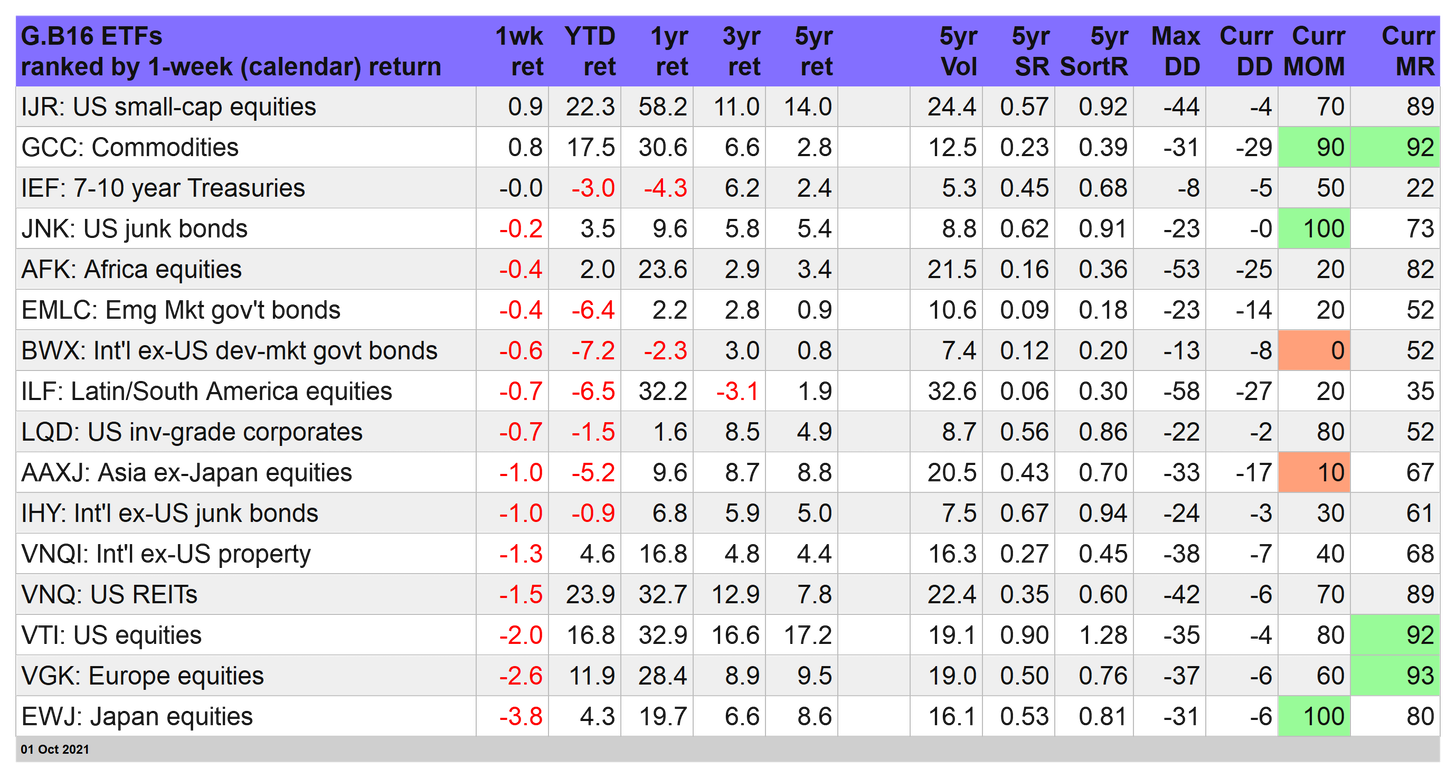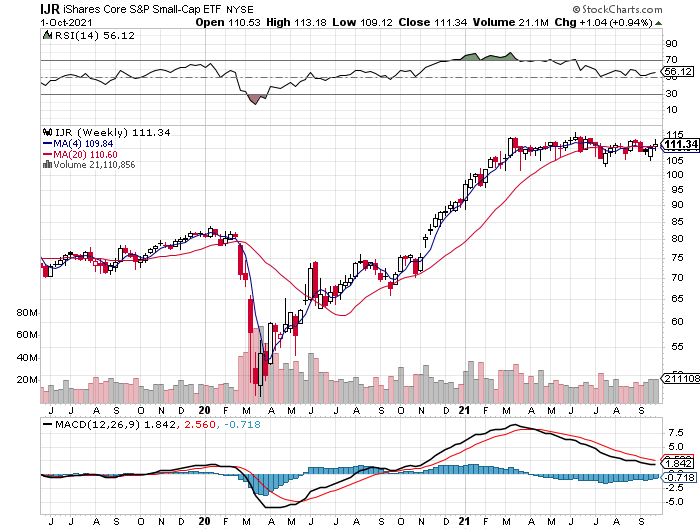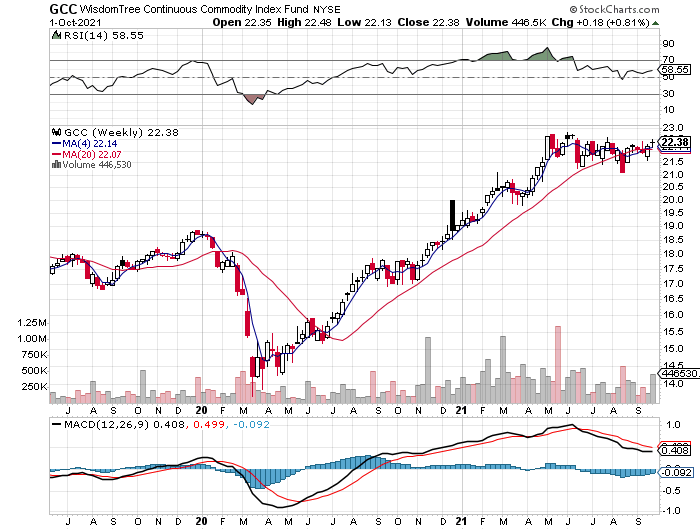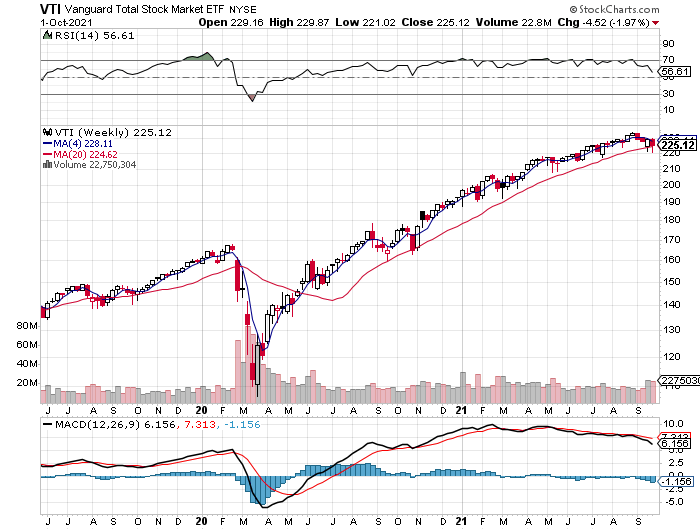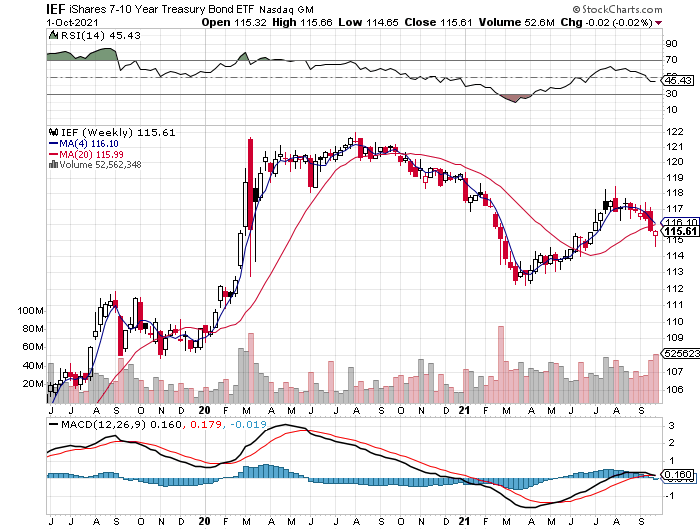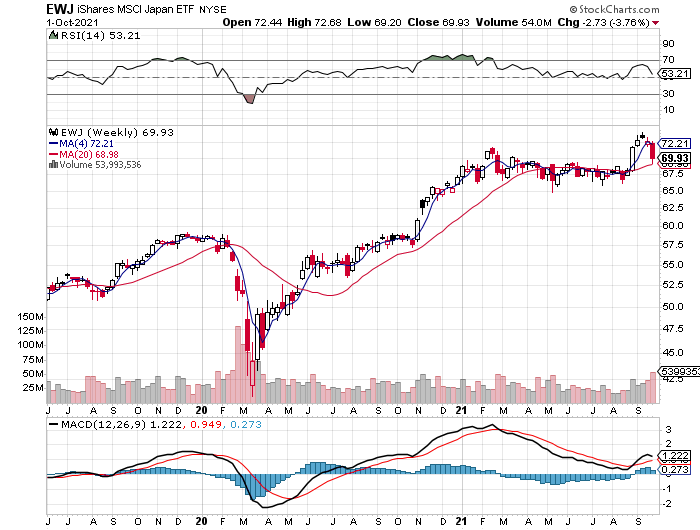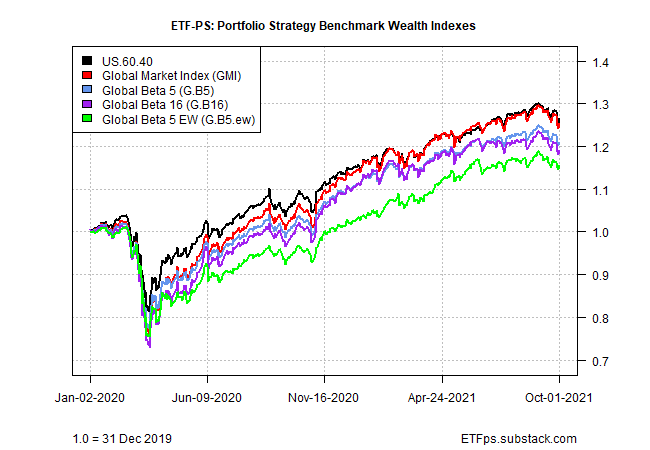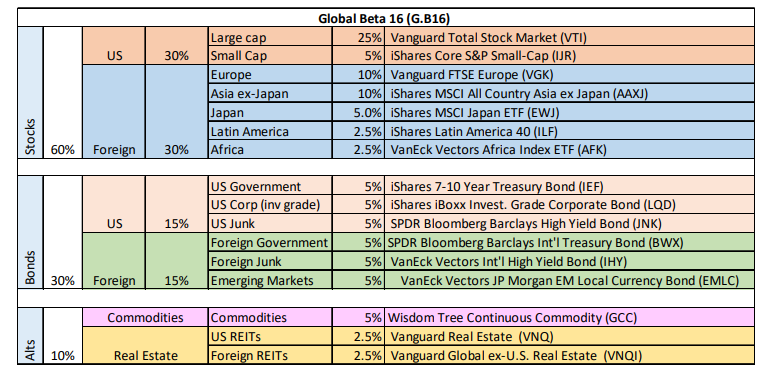Small-cap stocks and commodities rally
Otherwise, it was a bust for our world-spanning global ETF opportunity set for the trading week through Friday, Oct. 1. For details on all the strategies and metrics in the tables, see this summary.
Despite a fresh round of political turmoil in Washington, small-cap shares continued to edge higher, rising 0.9% for the week. The gain marked the third straight weekly advance. Are small caps pulling out of their recent funk? Possibly, although we’re still a bit skeptical since the rally of late only lifted iShares Core S&P Small-Cap ETF (NYSE:IJR) to the upper range of its trading history for 2021 to date.
But the relative value with small caps has caught the attention in some corners. Kiplinger’s this week advised that “small caps were offering undeniable value,” citing Morningstar data that showed these stocks trading at a respectable discount via average price-earnings ratio vs. large stocks—16 vs. 22.
Meanwhile, commodities enjoyed another weekly gain. The equal-weighted WisdomTree Continuous Commodity Index Fund (NYSE:GCC) rose 0.8%, closing the week near the highest level in two months. Bubbly news about inflation was keeping prices in this corner buoyant. One of the Federal Reserve’s favorite inflation measures—Personal Consumption Expenditures Index—accelerated in August, rising 4.3% year-on-year, the fastest pace in 30 years!
US stocks generally, on the other hand, were looking wobbly these past days. Vanguard Total Stock Market Index Fund ETF Shares (NYSE:VTI) slumped 2.0% this past week. We’ve been here before, but the latest decline in recent weeks was the deepest and longest this year. Some of the weakness was probably driven by the uncertainty in Washington over the on-again/off-again infrastructure bill.
US bonds, on the other hand, looked increasingly bearish. The iShares 7-10 Year Treasury Bond ETF (NYSE:IEF) slumped for a sixth week. If inflation data stays hot, Treasury yields will likely rise further and IEF will remain on the defensive.
The biggest loser for our global opportunity set this week: equities in Japan. The iShares MSCI Japan ETF (NYSE:EWJ) tumbled 3.8%. Some of the loss was related to challenging macro conditions for Japan, but political factors were playing a role.
Recall that EWJ surged a few weeks back when Prime Minister Yoshihide Suga decided to step down, which triggered a sharp rally, presumably on expectations that his replacement would usher in a new period of pro-growth policies. But as I noted a month ago, “until it’s clear who’s going to run the show (and we’re a long way from clarity on that front), today’s jump looks like a speculative, short-term move.”
That was then. Last week we learned that a party stalwart, Fumio Kishida, will become the new prime minister. But it’s fair to say that the market’s skeptical that the country is set to embark on a new run of economic dynamism.
Across-the-board losses for strategy benchmarks
With red ink dominating most markets last week, there was no place to hide for our portfolio benchmarks. Losses ranged from 0.7% for the equal-weighted Global Beta 5 EW (G.B5.ew) to a much steeper 1.7% weekly decline for the more granular allocation of Global Market Index (GMI).
When the dust cleared, G.B5.ew remained far in the lead year-to-date.

